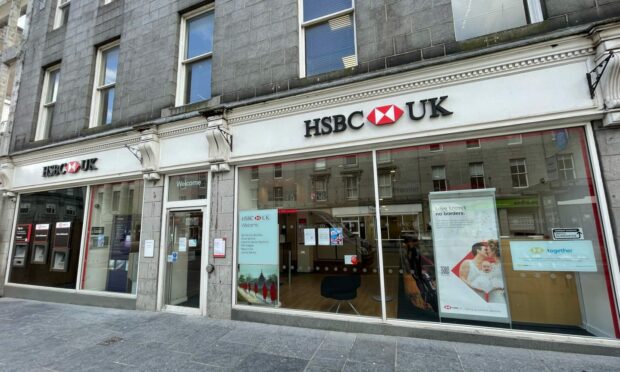HSBC UK has expanded its scheme designed to help homeless people open a bank account to Aberdeen.
The No Fixed Address scheme has been rolled across Scotland, with the bank’s Union Street branch now offering the service.
In partnership with Shelter Scotland, the scheme will help homeless people access benefits, receive wages and pay rent.
They will also be able to access important digital financial services more easily.
The bank and Shelter Scotland hope this will help break the cycle of homelessness. Recent figures showed Aberdeen with 1,220 households classed as homeless or having no permanent address.
Shelter Scotland issues referrals for the scheme, which has helped more than 2,300 people since it began in 2019.
HSBC’s local director for Aberdeen Julie Dempsey is “delighted” the branch is now part of the initiative, which she described as a “vital service” for the community.
Scheme to ‘give people the independence they need in life’
The No Fixed Address scheme has been rolled out across 184 branches and until now had only two based in Scotland located in Glasgow and Edinburgh.
Now Aberdeen and Dundee have been added to the list.
Alison Watson, Shelter Scotland director, said: “Home is everything, and if you don’t have a safe, secure affordable home, life can be a nightmare.
“This will not only give people the independence they need in life but also help towards breaking the cycle of homelessness.”
Chris Bennett-Taylor, chief executive of Aberdeen Cyrenians which offers support for homeless people, said: “For someone without a fixed address, it can be incredibly difficult to access many basic services including medical appointments, benefits or jobs.
“People receiving benefits for instance, need an account to be able to collect what they are entitled to, but typically without an address, it is not possible to open a bank account.
“We welcome this move from HSBC and other banks, recognising the barriers and challenges people can face when they are in crisis.
“We are delighted to be working with HSBC to support people, ensuring that having no fixed address doesn’t worsen their hardship.”
